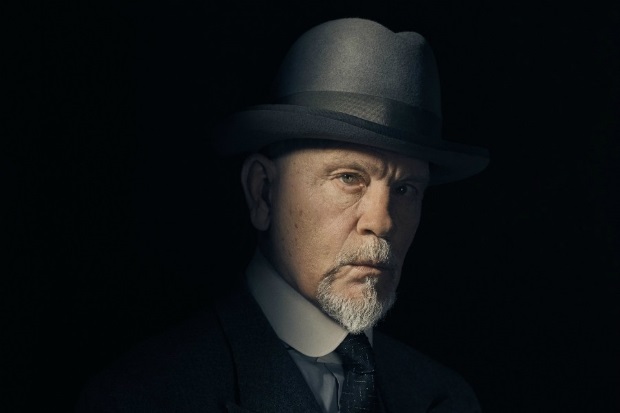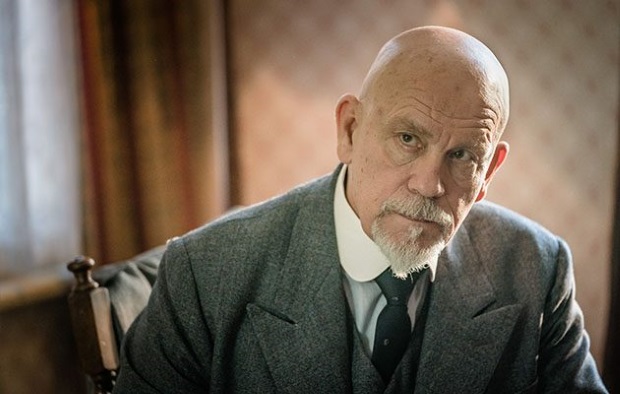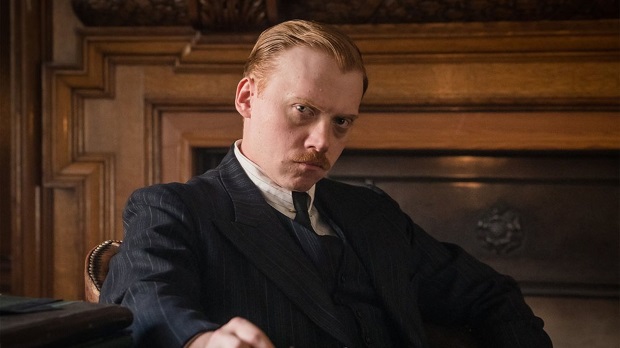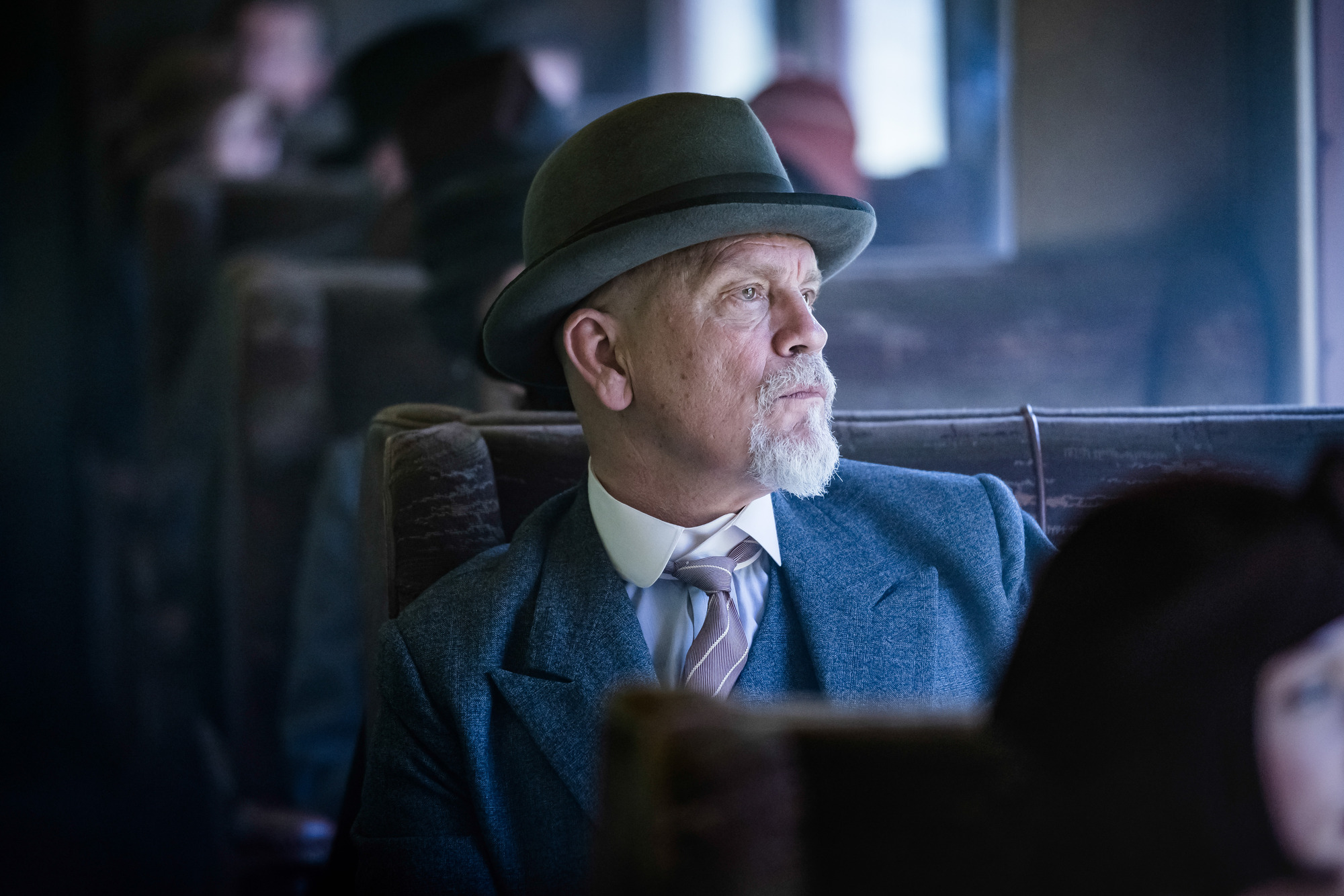The ABC Murders: what to expect from John Malkovich’s Poirot
John Malkovich stars as Agatha Christie's most famous creation in this BBC adaptation. We interviewed the cast and creative team...
Sarah Phelps’ adaptations of Agatha Christie’s murder mysteries have become a welcome fixture in the festive TV schedules. These new versions of Christie’s complex tales of death and deceit – approved by her estate – have offered fresh angles on familiar stories, confirming that the legendary author’s writing retains its power to surprise as well as to entertain.
2015’s And Then There Were None presented us with a powerful reworking of that chilling narrative, taking Christie’s novel as its starting point before pulling the rug out from under us in a stunning psychological twist to its infamous ending. The following year, The Witness For The Prosecution brought a melancholy glamour to one of Christie’s most successful short stories, while last year’s delayed Ordeal By Innocence plunged us into an intricate family drama. The BBC plans to broadcast six further adaptations of Christie’s work in the years to come. We can expect all-star casts, precise period detail, and timeless moral issues rich in contemporary resonance in each one. This Christmas, we’ll be watching perhaps the most exciting new retelling so far.
The name Hercule Poirot immediately conjures the unforgettable image of David Suchet, who, between 1989 and 2013, embodied the Belgian detective in ITV’s adaptations of every one of the 70 novels and short stories in which the character appeared. Peter Ustinov, Albert Finney, and Kenneth Branagh have also put their own stamp on Christie’s unforgettable creation. The BBC’s new version of The ABC Murders will allow John Malkovich to leave his own impression on a fascinating figure we think we know inside out. With an impressive cast including Andrew Buchan, Tara Fitzgerald, Rupert Grint, and Shirley Henderson, this production looks set to be one of the highlights of the year.
Putting an innovative spin on a character as beloved – and distinctive – as Poirot was a huge challenge. For director Alex Gabassi, Malkovich’s imposing, distinctive physicality was an asset in sparking off ideas. “When I saw John, and I saw that he was tall, I thought, well, that’s it – we’re going to be playing on this beautiful, tall, masculine figure. Even when he’s just standing there, there’s a sense of power in this man: there’s not only intelligence, but there’s also this presence.” Gabassi enthuses about the collaborative process behind the creation of Malkovich’s Poirot, one fraught with challenges as he and the actor pondered how best to make their vision of the Belgian sleuth come alive on screen.

One of this adaptation’s most shocking developments has already been spoiled by the advance publicity. If you didn’t spot it in the image above, brace yourself now. Yes, Poirot’s fabled moustache is no more, supplanted by a moustache-goatee combo. “I wanted to get rid of that discussion about moustaches,” laughs Gabassi. “Move on, you know? John wanted that, too.” Stripping away the trappings of Poirots past was a crucial element in uncovering the source material. Still more controversial will be Malkovich’s decision to give Poirot an English accent, an intriguing creative choice that will instantly set his incarnation of the character apart from earlier portrayals.
Costume designer Lindsay Pugh worked hard on the visual elements that went into defining this new portrayal. “We know Poirot very well. He started off as a written word, then Ustinov came along, and then David Suchet. That’s informed our opinion of him, but still, we have our own image of Poirot in our mind’s eye. I wanted him to be the pencil that draws a line between the many places we visit in The ABC Murders: very straight and very strict and very monochrome, and just sort of anonymous. He’s not flamboyant, as he’s sometimes been portrayed. He’s precise, but he’s precise in mind, so there isn’t very much flourish to him at all.”

For Gabassi, the cultural baggage is a little lighter than it is for many British viewers. “I’ve never seen a David Suchet Poirot. I’m Brazilian, and it never came to Brazil. I just remember seeing Peter Ustinov and Albert Finney. I didn’t see the film (2017’s Murder On The Orient Express) but I saw Kenneth (Branagh). Kenneth had this huge moustache, and that was emblematic of the accumulation of baggage around this character over the years! We’re trying to do something original, but at the same time, we’re betting on the fact that people will bring some things with them from those other portrayals.” Gabassi’s full of praise for the ‘character-driven’ moments inserted by Phelps, which, in his view, add further depth to Christie’s typically sophisticated plotting.
The Poirot we meet in The ABC Murders is still trading on his past glories, but his fortunes are fading. Gabassi wanted the surroundings to reflect this. “When we look back at the 1930s, we usually look back at Art Deco. The trains are all clean, everything’s very nice. I wanted it to look dirty.” Pugh appreciated the challenge of conveying the class stratification of 1930s British society through costume as Christie’s story jumps from one destination to another. ‘We go from really high class to really low class and everything in between – different parts of the country, different industries, and different demographics.’

The supporting characters have undergone transformations of their own in Phelps’ adaptation. Rupert Grint plays Inspector Crome, a young detective thrust into the spotlight as he deals with a string of high-profile murders. “I think he was originally an older man, but it’s an interesting dynamic to have this younger character working with Poirot.” The two men’s relationship begins under inauspicious circumstances. “Poirot betrays a good friend of Crome’s, Inspector Japp (Kevin McNally). It’s quite a cold and frosty introduction.” Over the course of the three episodes, the frost gradually thaws. “Crome’s from a new generation, quite insecure in his role and desperate to prove himself, and he often comes to quite wild conclusions. Poirot becomes a sort of mentor to him.” In the absence of Poirot’s loyal companion, Hastings – cut from the narrative due to the need to streamline Christie’s complex experiments in point of view, which work brilliantly on the page but less so on the screen – Crome provides the isolated genius with a much-needed sounding board.
The Belgian supersleuth might have been denuded of his own facial topiary, but Grint’s ensured that this production’s far from a moustache-free zone. He’s justifiably proud of his period-appropriate effort, which only serves to strengthen the impression of Crome as an up-and-coming man keen to present a mature face both to his colleagues and to a demanding public. Grint’s endearingly candid about the shock of adjusting to his heavy costume, drawing wryly self-deprecating comparisons to Bugsy Malone and its child stars swamped by layers of oversized clothing.

His co-star Eamon Farren, who plays the mysterious, troubled Cust, is a convert to Thirties garb. “The coats I can do without, but the fashion in general is super nice!” The Australian actor’s thrilled to be involved in British television, having been given a thorough grounding in the classics by his Irish family (“The Bill was our babysitter”). Anya Chalotra – cast as the tough, good-hearted Lily, whose ‘beautiful’ connection with Cust is a ray of hope in a life suffused with darkness – shares Farren’s enthusiasm for Christie’s work. “I’ve watched all of them! My favourite was And Then There Were None. I’ve read the novel, too, which is probably why I loved it so much.”
Grint’s been struck by the relevance of the world depicted in The ABC Murders to present-day concerns, with its backdrop of refugee crises and political unrest. ‘There’s the BUF movement (British Union of Fascists). It’s not directly focused on in the story, but you can really feel the sense among people of the hostility towards immigrants and foreigners. There’s a weird kind of symmetry with today’s world.’
Producer Farah Abushwesha echoes this sentiment, summing up the timeless appeal of Christie’s story while highlighting its parallels in modern society. “This holy grail of the Agatha Christie stories – there’s something that is so quintessentially British. We take it, we sweep it up, and we see a vulnerability and a heart to it, and we see these people in the aftermath of murder and death and loss, added to the simple fact of being an outsider in another country. You feel it sometimes with a script. There are certain projects that have a magic to them, and you just want to unleash that.”
Dark, distinctive, and decidedly modern in flavour. Christie – never the biggest Poirot fan, ironically enough – would have approved.
The ABC Murders is available now in the US on Amazon Prime Video.
